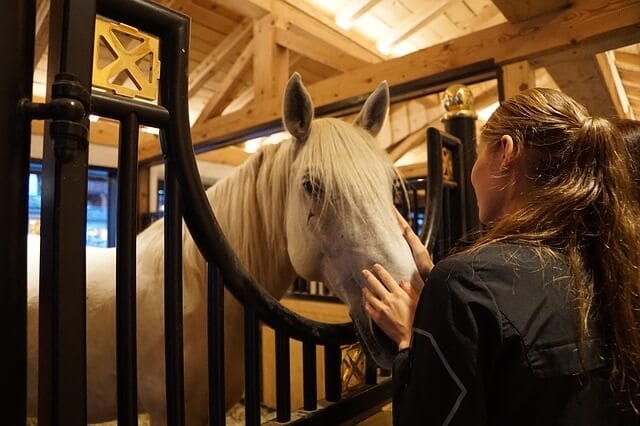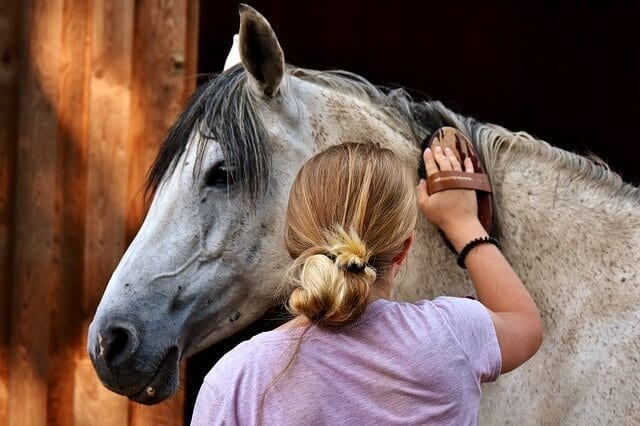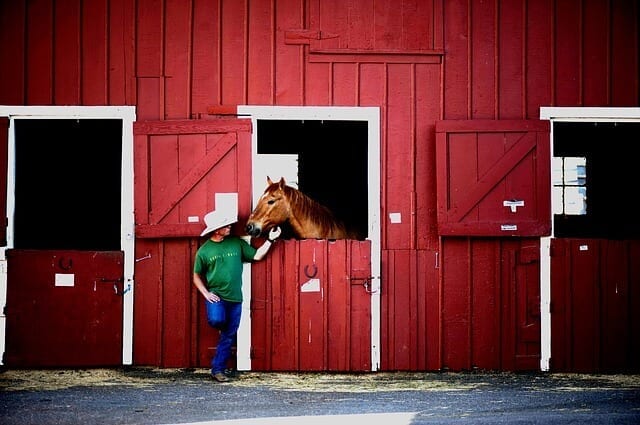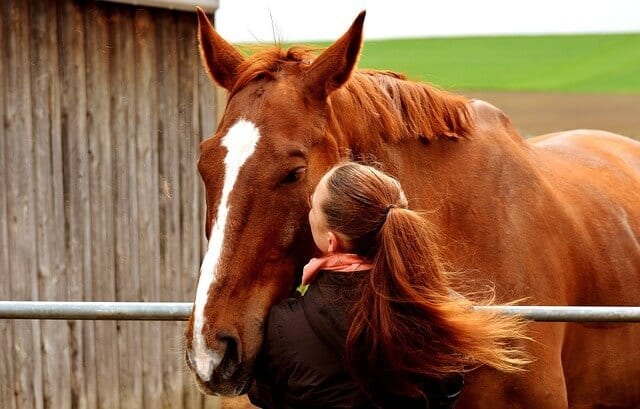
It is not uncommon for the heart rates of a loving couple or a parent and child to sync up during intimate moments. Researchers at the Italian University of Pisa Department of Veterinary Sciences designed an experiment to see if this phenomenon also occurs between humans and equines. The preliminary study – which will serve as a spring board for further research – consisted of eleven humans and one mare.
The human participants were asked to interact with the mare as follows:
- Part 1: The human sat still in a chair in a stall next to the horse’s stall.
- Part 2: The human continued to sit still in the chair, but the horse entered the stall with the human and could explore the human through sniffing and touching.
- Part 3: the human groomed the horse.

The researchers used high-tech wearable monitoring systems and advanced algorithms to collect and tabulate their data. Specifically, the heart rate and heart rate variability (the slight changes in heart rate from beat to beat) of the horse and each human participant during their interactions.

They found that the mare and the humans tended to “couple” their heart rate variability – which is a strong indicator of emotional status – during Part 2 where the horse first made contact. Surprisingly, the coupling broke down during grooming in Part 3, with the HRV becoming more differentiated between horse and human.
Study author, Paolo Baragli, DVM, PhD explained his theory for this variation between phases:
“In Part 2 the horse is free to move and can decide by himself to approach the human or not. In Part 3 the horse is ‘forced’ to the contact with the human. The opportunity to have choice is one of the new frontiers of animal well-being and, in that way, our very preliminary results seem to confirm that giving the animals the opportunity to have a choice meets their emotional requirements.”

Baragli feels that if future studies confirm the team’s early findings,
“That would mean that both autonomic nervous systems of horse and human can be influenced reciprocally. This could be a sign of an emotional transfer between horse and human. But at this point we cannot exclude other and less relevant reasons, like chance.”
According to Baragli, the study “could be relevant in the assisted intervention with horses but even in the day-to-day relationship for leisure and sport.”
This article originally appeared on I Heart Horses and is published here with permission. Find out more about equine health in our section on Health & Education.

































